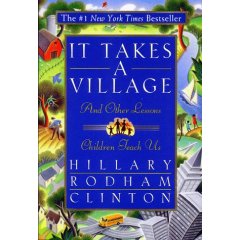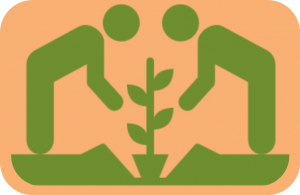 In her book “It takes a village”, Hillary Clinton observed that adults outside the family have profound impacts on the development of a child, and advocated for society to better meet children’s needs.
In her book “It takes a village”, Hillary Clinton observed that adults outside the family have profound impacts on the development of a child, and advocated for society to better meet children’s needs.
We raise scientists in much the same way we raise children, often in small groups with one or two mentors (and sometimes effectively none). Just as some children don’t need much external support, some young scientists seem to thrive without any obvious input or connections, but for the majority these connections are vital. Nurturing young scientists takes a supportive community that anticipates and meets their needs.
A supportive society is generous with its time. Saying “Let me know if I can help,” “If there’s ever anything I can do for you,” and “I’d be happy to read that for you” removes a huge psychological barrier and invites a young scientist to ask for help or guidance. It’s a lot less scary to knock on a door and ask for help when an invitation already has been issued.
Often we make connections within our departments or at conferences, but increasingly they are being formed online. LinkedIn, FaceBook and Twitter make it relatively easy for junior and senior scientists to interact, share ideas and share a joke. Plantae, the newest addition to the online networking sphere, is a digital ecosystem for plant sciences that will be launching soon. Plantae will provide virtual spaces for sharing ideas and connecting. Topical discussion groups have been established to help members connect with those of similar interests. You don’t have to be a senior scientist to have somethng to offer; even students have experiences and exertise that they can share with others. Listening, supporting and offering help can all be done informally, but Plantae also offers members the opportunity to serve formally as a mentor: more on that coming soon. 
Like many scientists I’m faced with pile of other people’s work that I promised to review this weekend, taking time away from my own work and family. We all have to do our share to keep our communities strong and support those who are still aspiring towards success. So wherever you are, in the spirit of American Thanksgiving, take a minute to reflect on the many ways being part of a community has helped you to achieve your career and life goals, and how you plan to pay it forward. Not everyone you help will go on to set the scientific world on fire, but you just might provide the oxygen that keeps their embers glowing.
And don’t be afraid to ask for help. Even the brightest and best need help and support from time to time – here’s a video clip of Sir Paul Nurse (Nobel Laureate) describing how his career was helped by someone who took the time to give him a bit of help when he needed it (link).
Happy Thanksgiving to my American friends and Thank You to the many mentors, formal and informal, who have helped me along the way.

Brilliant. I know it’s not fashionable to leave blog comments anymore, but thought I’d comment to say I agree with this so much.